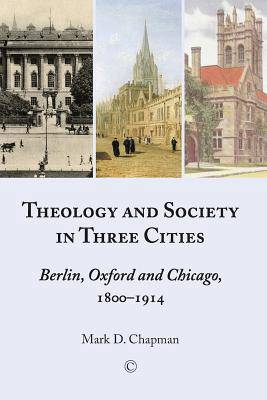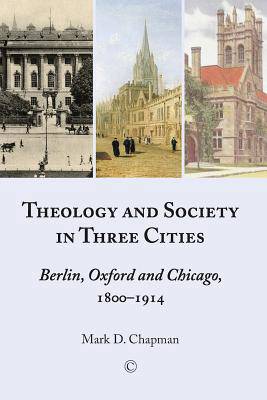
- Retrait gratuit dans votre magasin Club
- 7.000.000 titres dans notre catalogue
- Payer en toute sécurité
- Toujours un magasin près de chez vous
- Retrait gratuit dans votre magasin Club
- 7.000.0000 titres dans notre catalogue
- Payer en toute sécurité
- Toujours un magasin près de chez vous
Theology and Society in Three Cities
Berlin, Oxford and Chicago, 1800-1914
Mark D Chapman
Livre broché | Anglais
72,95 €
+ 145 points
Description
Oxford, Berlin and Chicago were extraordinarily dynamic centres of theology during the nineteenth and early twentieth centuries. However, significant differences in the political climate and culture of each location bred strikingly divergent theological approaches in the universities of each city. Mark Chapman offers a highly original exploration of the subjection of their theologies to the changes and developments of educational policy and national and international politics, shedding light upon the constraints that such external factors have imposed upon the evolution of the discipline. Chapman highlights the efforts of theologians and churchmen to relate the true core of Christianity, a lived religion free of shibboleths, to their rapidly changing world. The opinions of conservative and liberal theologians are skilfully balanced to reveal the problems of critical history, of political authority, of increasing global awareness and of the need for social amelioration, which profoundly shaped the ways in which theology was conceived during the period. New ground has been broken in this inter-disciplinary study of the social, political and ecclesiastical contexts of Western theology. This book will be invaluable to any reader interested in the use of theology as part of the wider quest for social integration and meaning in an increasingly fragmented society.
Spécifications
Parties prenantes
- Auteur(s) :
- Editeur:
Contenu
- Nombre de pages :
- 160
- Langue:
- Anglais
Caractéristiques
- EAN:
- 9780227679890
- Date de parution :
- 30-10-14
- Format:
- Livre broché
- Format numérique:
- Trade paperback (VS)
- Dimensions :
- 155 mm x 234 mm
- Poids :
- 262 g

Les avis
Nous publions uniquement les avis qui respectent les conditions requises. Consultez nos conditions pour les avis.






